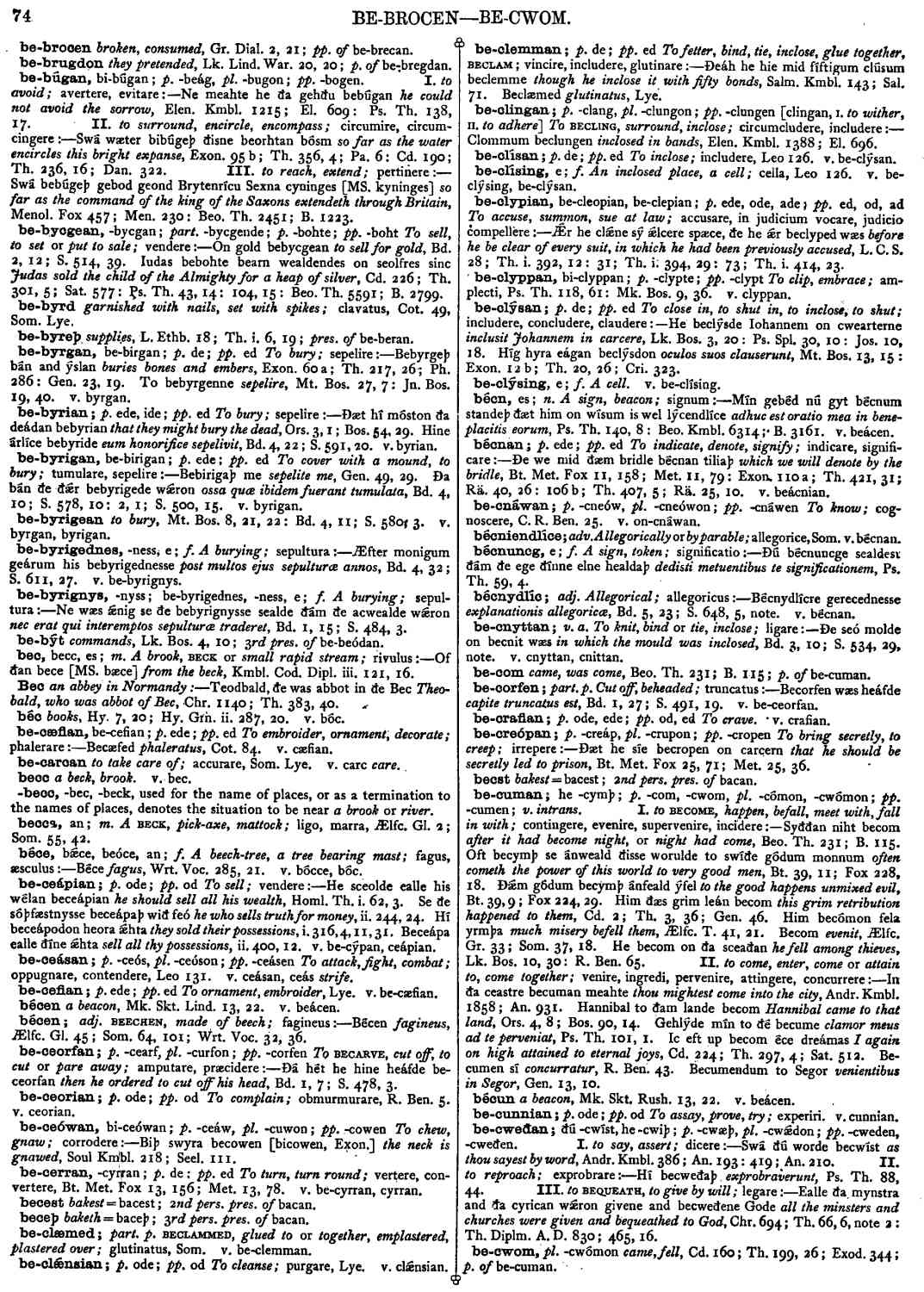be-cuman
- verb [ strong ]
-
Syððan niht becom
after it had become night, or night had come,
- Beo. Th. 231 ;
- B. 115 .
-
Oft becymþ se ánweald ðisse worulde to swíðe gódum monnum
often cometh the power of this world to very good men,
- Bt. 39, 11; Fox 228, 18 .
-
Ðǽm gódum becymþ ánfeald ýfel
to the good happens unmixed evil,
- Bt. 39, 9 ; Fox 224, 29 .
-
Him ðæs grim leán becom
this grim retribution happened to them,
- Cd. 2 ; Th. 3, 36 ;
- Gen. 46 .
-
Him becómon fela yrmþa
much misery befell them,
- Ælfc. T. 41, 21 .
-
Becom
evenit,
- Ælfc. Gr. 33; Som. 37, 18 .
-
He becom on ða sceaðan
he fell among thieves,
- Lk. Bos- 10, 30 :
- R. Ben. 65 .
-
In ða ceastre becuman meahte
thou mightest come into the city,
- Andr. Kmbl. 1858 ;
- An. 931 .
-
Hannibal to ðam lande becom
Hannibal came to that land,
- Ors. 4, 8 ; Bos. 90, 14 .
-
Gehlýde mín to ðé becume
clamor meus ad te perveniat,
- Ps. Th. 101, 1 .
-
Ic eft up becom éce dreámas
I again on high attained to eternal joys,
- Cd. 224; Th. 297, 4 ;
- Sat. 512 .
-
Becumen sí
concurratur,
- R. Ben. 43 .
-
Becumendum to Segor
venientibus in Segor,
- Gen. 13, 10 .
Bosworth, Joseph. “be-cuman.” In An Anglo-Saxon Dictionary Online, edited by Thomas Northcote Toller, Christ Sean, and Ondřej Tichy. Prague: Faculty of Arts, Charles University, 2014. https://bosworthtoller.com/3274.
Checked: 1